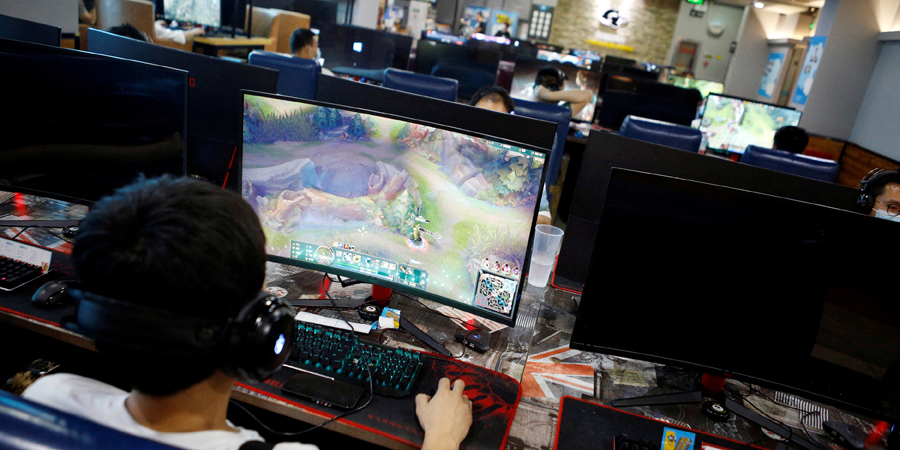
今年 4月11日,国家新闻出版署公布了国产网络游戏审批信息,一共有45款游戏获得了版号,结束了自去年8月开始的版号核发“冻结期”。尽管这一监管动态被从业人员视为行业回暖的信号,但律师指出,游戏行业的监管思路其实并未改变,始终坚持优质的游戏内容、加强对未成年人的保护,从业者仍须将此视为合规重点。
游戏内容精品化
距离国家新闻出版署上一次批准游戏版号已经过去了八个月。回顾这段“冻结期”,植德律师事务所合伙人赵芸芸律师表示,这主要是监管机构出于对未成年的保护而做出的一系列调整,包括建立防沉迷机制、禁止攀比消费和不良题材等。
如今,版号发放虽已恢复,但数量大不如前。去年7月,共有87款游戏获得版号,此次发放的数量减少了近一半。这也并非游戏版号数量的首次下滑,据《证券时报》旗下媒体“e公司”统计,版号数量自2019年起就持续缩减:2019年审批通过1365个,2020年1308个,2021年则减少到679个。
“通过调控总量,摒弃一些低质量、粗糙的游戏,转而鼓励精品游戏的开发,是此次政策引导的一个要点,” 赵律师说。她表示,就内容而言,在这一批获得版号的游戏中,青少年益智类、“红色”题材类、成长题材类等都是被单独划分的,这些质量上乘、符合政策要求的游戏未来应该会获得比较长足的发展。
赵律师还注意到,类似腾讯、Bilibili这样游戏市值排名比较靠前的公司并未出现在这一批获得版号的游戏厂商名单中。她认为,一方面,这些公司的游戏版号储备足够丰富,短期的冻结对公司运营的影响尚不触及根本;另一方面,这也可以解读为政策对中小游戏厂商有所扶持的风向标,“对于这类公司而言,即使只有一两个产品迟迟得不到发布,也有可能对其运营带来较大打击。”
市场的反应在一定程度上印证了赵律师的观点。据《第一财经》报道,有游戏公司高管曾表示,版号发放暂停期间,公司工作进展缓慢,运营陷入艰难局面。而恢复版号发放后,不少游戏公司高管在社交平台上表达了喜悦之情,中概游戏股股价也有所上涨。
律师的角色
并非所有的中小游戏公司都熬过了“寒冬”。根据新浪科技,最新发放的45款版号中,多个过审游戏背后的公司已经倒下。赵律师认为,无论是从业者还是监管机关,都不愿看到这样的版号“浪费”。律师要发挥自身的优势,帮助游戏公司加强与监管机构的沟通。
“作为专注于游戏行业的律师,我们一直关注监管的动向,对于某一次监管的引导性、监管机关的变更及其背后的含义,我们会有更深入和长期的理解。我们的具体业务也涉及到游戏公司与监管机关沟通文件的起草,能够从游戏公司具体的需求出发,向监管机关寻求更加具体的实操指引。”赵律师说。
赵律师表示,从目前来看,游戏行业的监管暂时不会有较大的变化,游戏公司应该在内容和其他各层面合规的前提下去打造自己的产品,尤其要将未成年人保护以及个人隐私保护、数据安全等作为合规重点。
“目前的监管支持精品化、内容符合价值观导向的游戏公司,同时也鼓励游戏‘出海’。游戏从业者朝着监管倡导的方向去思考自己的业务,应该会获得更长远的发展。”赵律师说。
As China resumes game licensing, lawyers say compliance remains a top priority
On April 11, the National Press and Publication Administration announced the approval of licenses for 45 Chinese game titles, lifting the suspension of game licensing that had been in place since August last year. While the gaming sector cheered the positive news, lawyers say that this move does not imply a change in regulatory approach. On the contrary, the regulatory tightening on the sector is not likely to be reversed, with the emphasis still on high-quality content and protection of minors. Therefore, gaming companies need to continue ensuring compliance in this respect.
QUALITY MATTERS MORE THAN QUANTITY
It has been eight months since the last batch of approved game titles. Looking back at the months-long freeze, Zhao Yunyun, a partner at Merits & Tree Law Offices, says that it mainly involved a series of regulatory adjustments relating to the protection of minors, including installing an anti-addiction mechanism, discouraging conspicuous consumption, and banning unhealthy content.
Although China has resumed game licensing now, the number of approvals is far less than before, with the 45 new titles barely making up half the number (87) of last July. This continues a steady trend of declines in game approvals. According to egsea.com, a media subsidiary of the Securities Times, the number of new approvals annually has shrunk from 1,365 in 2019 to just 679 in 2021.
"A key point of the policy is to control the number of new games, rejecting poorly-made low-quality games and encouraging the development of high-quality games," Zhao says. In terms of content, games themed on cultivating intelligence, building patriotic spirit, and ensuring the development of youth are in the “high-quality” category. Games comply with applicable policy requirements are likely to receive faster approvals.
Zhao also notes that none of the newly approved games have been produced by the country's gaming giants like Tencent and Bilibili. This may be because, for one thing, these leading companies have a relatively substantial reserve of game titles and a short-term freeze makes no fundamental impact on their operations. For another, the policy may intend to provide support for small- and medium-sized game developers. "For smaller studios, the prolonged publication of even only one or two games can bring a heavy blow to their business," she says.
ROLE OF LAWYERS
These approvals, however, might have come too late for a few of the smaller players, with Sina Technology reporting that some companies behind the creation of the 45 newly approved games have collapsed. Zhao believes that in order to avoid such situations, lawyers should facilitate communications between game developers and regulators.
"As lawyers dedicated to the game industry, we always keep track of the regulatory developments. We can have better understanding of policy guidance and changes initiated by the regulators as well as their implications. We also participate in drafting communication documents between game companies and regulators, helping game companies seek more specific and practical regulatory guidelines to meet their specific needs." Zhao says.
She adds that at the current stage, there should be no major changes in regulations over the game industry, and game companies should focus on compliance in content and other aspects when developing games. Above all, the priority should be put on the protection of minors, personal privacy, and data security.
"Regulators are in favor of companies that produce quality games of right values and encourage companies to explore the overseas market. By taking into account the regulatory direction, companies are expected to see sustainable business growth," Zhao says.


